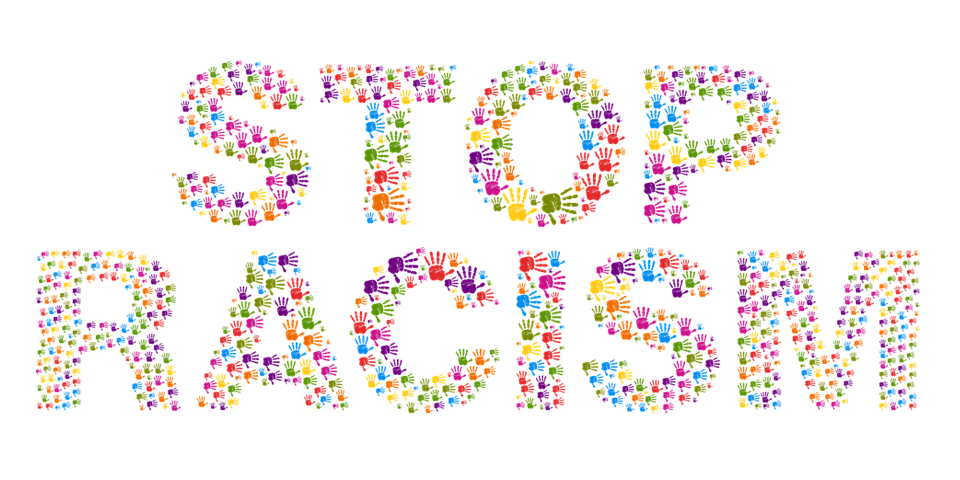Becoming Anti-Racist
by Sheryl Johnson
I don’t know when I came to realize that I’m a racist. Not the hood wearing, confederate flag waving kind, but the kind that doesn’t think twice about a photo voter ID law that just happens to disproportionately impact people of color, or the kind that looks a little more suspiciously at a group of black kids gathered on the corner when a white group wouldn’t give me a second thought.
I grew up around people of color and knew and liked people of color. There were even people of color at my surprise 16th birthday party. But I didn’t really get to know a person of color until college. I still remember the phone call between my soon to be roommate and me. This was 1990, there was no FaceTime. I think we may have even had to write a real letter to each other to get a phone number.
As we shared information over the phone with one another, trying to figure out why the university thought we would make good roommates, I began to notice the subtle hints she was dropping. Though she never came right out and said it, when I got off the phone, I remember going to my mom and saying, “I think my roommate is black.”
The University of Richmond was right about us making good roommates (and I was right about her being black!) We were roommates all four years, and during that time I learned things first hand about how different the experience for an African American is than for me, even one raised by two well-educated parents in a white middle-class suburban neighborhood, just like me.
My seminary education continued my growth. Growing up I was taught salvation was personal; it meant accepting Jesus as Lord and Savior and then I’d be saved and go to heaven. Seminary exposed me to things like liberation theology and to womanist theology. It helped me see more clearly how God is interested in our lives here and now, that salvation is bigger than the individual, and that the Kingdom of God is something we are to actively be bringing about here on earth, not just someplace we go to when we die.
Jesus is recorded as saying in John’s gospel, “I came that you might have life, and have it more abundantly.” And he meant this life, not the afterlife. Abundant was not a code word for eternal. This is a radical thing to be saying to a gathering of the poor, the oppressed, the marginalized. I began to realize the profound impact of Jesus announcing the beginning of his ministry by reading from the scroll of Isaiah:
‘The Spirit of the Lord is upon me,
because he has anointed me
to bring good news to the poor.
He has sent me to proclaim release to the captives
and recovery of sight to the blind,
to let the oppressed go free,
to proclaim the year of the Lord’s favor.’
All of these ideas were infiltrating my thinking in almost the same way my implicit bias had. Slowly without even fully recognizing it, I had become invested in social and racial justice as an integral and necessary component of my faith.
Scripture records an exchange Jesus had with some of the religious leaders of the time. They asked him, what is the greatest commandment? After all, there are hundreds of them contained in the Jewish law and prophets. Jesus didn’t technically narrow it down to one, but he got it down to two which is pretty good I think. First off, love the Lord your God with everything you’ve got: heart, soul, mind, strength. And the second is like it: love your neighbor as yourself.
If we are to love our neighbor like we love our God, with everything we’ve got, we cannot help but stand up and say black lives matter. We cannot help but support those who advocate for a living wage. We cannot help but fight racial prejudice and injustice wherever it is found – in our criminal justice system, in our school funding equations, in our housing policies, in our own hearts.
The other day in an anti-racism training workshop I was leading, a couple people introduced themselves as “recovering racists”. That’s not a bad term for it. In some ways, I will always be a racist because that implicit bias I internalized unwittingly from media, from my socialization, will always be with me. But now that I’m aware of it, the choice is mine as to what am I going to do about it.
And that is the question before each of us. Racism is real. Implicit bias is real. It is not just out there, it is inside each of us. And if we are to live into our principles as followers of Jesus, if we are to love others with everything we’ve got, if we are going to live like we believe we are all made in the image of God and are each God’s beloved child, we have a choice to make each and every day about how we will work to create the beloved community here on earth.
As for me, I choose to work every day to see things through an anti-racist lens. I’m not always successful, and I don’t always know exactly how to do it, but I’m trying. And it’s a start.

